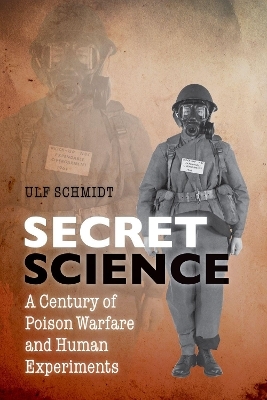
Secret Science
Oxford University Press (Verlag)
978-0-19-883380-2 (ISBN)
From the early 1990s, allegations that servicemen had been duped into taking part in trials with toxic agents at top-secret Allied research facilities throughout the twentieth century featured with ever greater frequency in the media. In Britain, a whole army of over 21,000 soldiers had participated in secret experiments between 1939 and 1989. Some remembered their stay as harmless, but there were many for whom the experience had been all but pleasant, sometimes harmful, and in isolated cases deadly.
Secret Science traces, for the first time, the history of chemical and biological weapons research by the former Allied powers, particularly in Britain, the United States, and Canada. It charts the ethical trajectory and culture of military science, from its initial development in response to Germany's first use of chemical weapons in the First World War to the ongoing attempts by the international community to ban these types of weapons once and for all.
It asks whether Allied and especially British warfare trials were ethical, safe, and justified within the prevailing conditions and values of the time. By doing so, it helps to explain the complex dynamics in top-secret Allied research establishments: the desire and ability of the chemical and biological warfare corps, largely comprised of military officials, scientists, and expert civil servants, to construct and identify a never-ending stream of national security threats which served as flexible justification strategies for the allocation of enormous resources to conducting experimental research with some of the most deadly agents known to man.
Secret Science offers a nuanced, non-judgemental analysis of the contributions made by servicemen, scientists, and civil servants to military research in Britain and elsewhere, not as passive, helpless victims 'without voices', or as laboratory and desk perpetrators 'without a conscience', but as history's actors and agents of their own destiny. As such it also makes an important contribution to the burgeoning literature on the history and culture of memory.
Ulf Schmidt is Professor of Modern History at the University of Kent, and a Fellow of the Royal Historical Society. He was previously Wellcome Trust Post-Doctoral Research Fellow, Senior Associate Member of St Antony's College, Oxford, and Research Associate at the Wellcome Unit for the History of Medicine at the University of Oxford. His research interests are in the area of the history of modern medical ethics, warfare and policy in twentieth-century Europe and the United States. He has published widely on the history of Nazi Germany, the history of human experimentation, the Nuremberg Doctors' Trial and the Nuremberg Code, the history of eugenics and euthanasia, and the history of medical film and propaganda.
Prologue: The Girl with a Gas Mask
1: Introduction
2: Justifying Chemical Warfare
3: Research Without Bounds
4: Preparing for Total Warfare
5: Deadly New Gases
6: Flying the Atlantic
7: Ethics Outdoors
8: Twilight Threshold
9: Ethics Within Limits
10: The Politics of Medical Memory
Epilogue: The Truth Lies in Fragmented Tales
| Erscheinungsdatum | 14.08.2019 |
|---|---|
| Zusatzinfo | numerous black and white figures/illustrations |
| Verlagsort | Oxford |
| Sprache | englisch |
| Maße | 151 x 232 mm |
| Gewicht | 998 g |
| Themenwelt | Geisteswissenschaften ► Geschichte ► Allgemeines / Lexika |
| Geschichte ► Allgemeine Geschichte ► Neuzeit (bis 1918) | |
| Geschichte ► Allgemeine Geschichte ► Zeitgeschichte | |
| ISBN-10 | 0-19-883380-6 / 0198833806 |
| ISBN-13 | 978-0-19-883380-2 / 9780198833802 |
| Zustand | Neuware |
| Haben Sie eine Frage zum Produkt? |
aus dem Bereich


